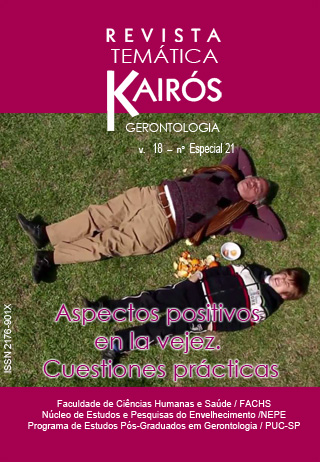Cognitive behavior training: Towards positive gerontological action
DOI:
https://doi.org/10.23925/2176-901X.2015v18iEspecial21p155-167Keywords:
Cognitive behavior training, Workshops, Elderly peopleAbstract
The aging process is accompanied by subtle changes in certain cognitive functions. One of the topics that most concerns people over 60 is losing their memory. In Cognitive behavior training workshops we focus on improving cognitive functioning. Through an organized exercise program aimed at learning strategies for cognitive efficiency we work to improve performance in the elderly's everyday life. From the Positive Psychology perspective, we focus on the positive effects highlighting the elderly's strengths and cognitive resources, which can be strengthened in the course of the training program. Based on the results of the research that we are developing within the framework of University for Integrated Older Adults (UPAMI) workshops, at the University of Buenos Aires Psychology School, most workshop participants report improving areas such as: attention, long-term memory, executive function and learning strategies; reduction of their fears against forgetfulness and expansion of social networks. Cognitive behavior training has shown to have a positive impact on three dimensions of psychic capital: in cognitive abilities to acquire and use forms of knowledge (creativity, curiosity and motivation to learn), in the capacity to establish personal relationships (emotional intelligence) and in the emotional capacity to develop projects overcoming obstacles (self-esteem).Downloads
How to Cite
Jaskilevich, J., Lopes, M., & Pepa, M. J. (2016). Cognitive behavior training: Towards positive gerontological action. Revista Kairós-Gerontologia, 18(Especial21), 155–167. https://doi.org/10.23925/2176-901X.2015v18iEspecial21p155-167
Issue
Section
Papers


